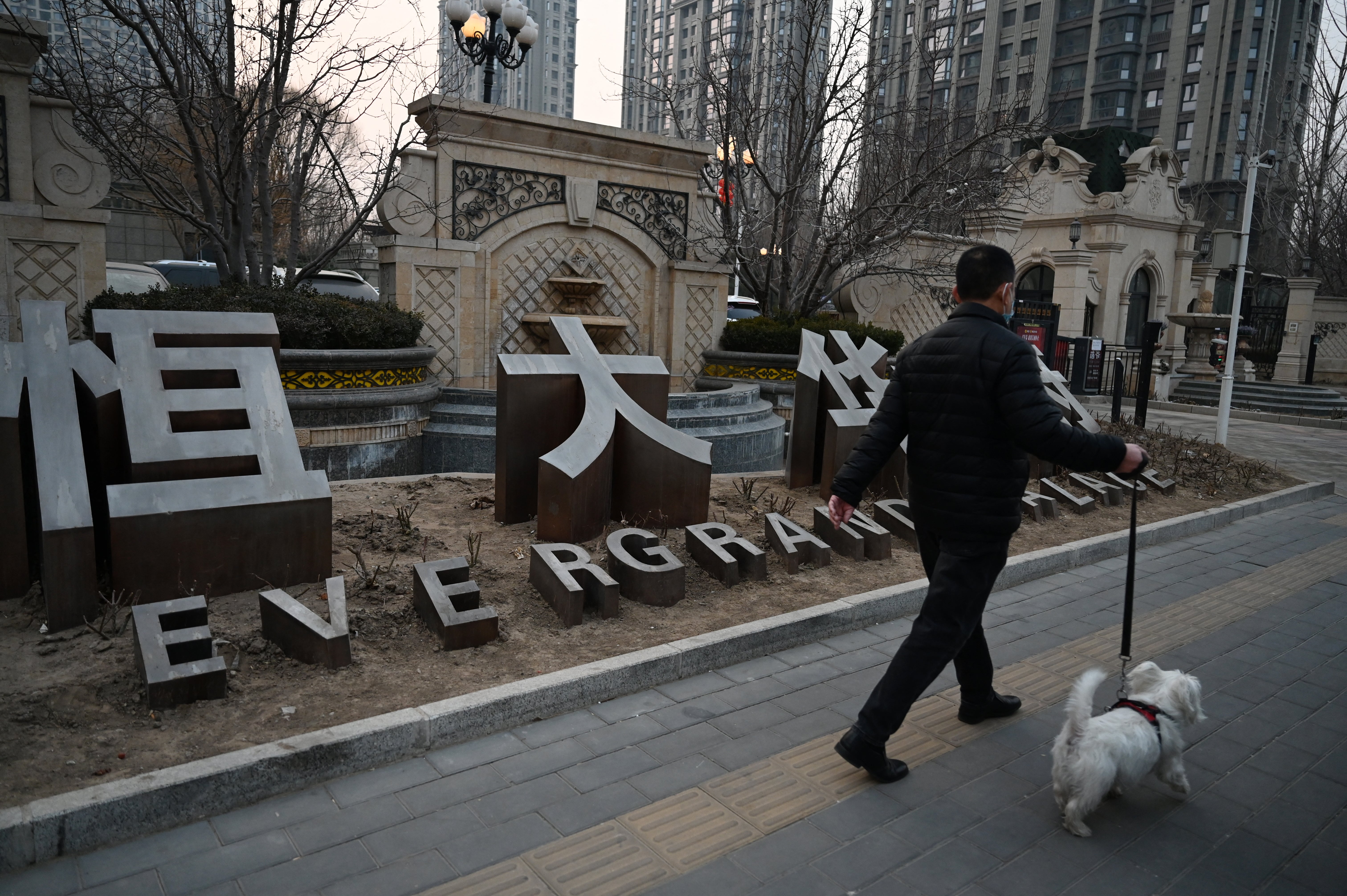Chinese property giant Evergrande was removed from the Hong Kong Stock Exchange on Monday, more than a year after the city's court ordered the indebted real estate developer to be liquidated.
Evergrande, which was once China's premier developer, was delisted from the Hong Kong stock market for its failure to resume trading within 18 months, according to a filing on 12 August.
The delisting will close a chapter in China's unprecedented property crisis that started in 2021, though it's unlikely to be the last to meet such a fate as the sector continues to be hobbled by a liquidity squeeze and a lack of demand.
Evergrande was the world’s most heavily indebted real estate developer, with $300bn (£221bn) owed to banks and bondholders, when the court handed down a liquidation order in January 2024.
The court ruled the company had failed to provide a viable restructuring plan for its debts, which fuelled fears about China’s rising debt burden, and trading of its shares was halted since the ruling.
"Once delisted, there is no coming back," Dan Wang, China director at political risk consultancy Eurasia Group, told BBC. The "delisting now is surely symbolic but it's such a milestone," she said. All that remains is which creditors are paid and how much they can get in the bankruptcy process, Ms Wang added.
China Evergrande Group started with a strong public market debut and a stock value of $9bn (£6.6bn) in late 2009 that grew more than five-fold to $51bn (£37.7bn) eight years later only to plummet to earth in recent years. It is now worth a meagre $282m (£208m).

The company's journey from stock exchange darling to a pariah in the financial markets is a cautionary tale of unbridled debt-fuelled expansion in the world's second-largest economy. Its shares fetched HK$31.39 (£2.9)apiece at its peak, and it was down to HK$0.163 (£0.015)when it exchanged hands for the last time 19 months ago.
The developer received a letter on 8 August from the city's stock exchange notifying the firm of its decision to cancel the listing as trading had not resumed by 28 July. The last day of the listing will be 22 August and Evergrande will not apply for a review of the decision, the company said in a statement.
“All shareholders, investors and potential investors of the company should note that after the last listing date, whilst the share certificates of the shares will remain valid, the shares will not be listed on, and will not be tradeable on the Stock Exchange," the statement said.
Evergrande is among scores of developers that defaulted on debts after Chinese regulators cracked down on excessive borrowing in the property industry in 2020. Unable to obtain financing, their vast obligations to creditors and customers became unsustainable.
The crackdown also tipped the property industry into crisis, dragging down the world’s second-largest economy and rattling financial systems in and outside China. Once among the nation's strongest growth engines, the industry is struggling to exit a prolonged downturn. Home prices in China have continued to fall even after the introduction of supportive measures by policymakers.
The Hong Kong court system has been dealing with liquidation petitions against some Chinese property developers, including Country Garden, which is expected to have another hearing in January.
“Evergrande is one of the landmark examples of the collapse of China's real estate sector a few years ago," said Gary Ng, senior economist at investment bank Natixis.
Evergrande, founded in the mid-1990s by Hui Ka Yan, also known as Xu Jiayin, had over 90 per cent of its assets on the Chinese mainland, according to the 2024 judgement. Mr Hui was detained in China in September 2023 on suspicion of committing crimes, adding to the company’s woes.
Last year, the China Securities Regulatory Commission issued a fine of 4.2bn yuan (about £431m) against the firm's subsidiary, Hengda Real Estate Group Company, over violations including falsifying financial records. Mr Hui was fined 47m yuan (£4.8m) and barred from China’s securities markets for life. Some other executives were also penalised
Chinese authorities in September 2024 banned the accounting firm PwC for six months and fined the company more than 400m yuan (£41.7m) over its involvement in the audit of the collapsed property developer.
Chinese authorities over the past few years have been striving to revive the property sector that once accounted for a quarter of its GDP, while buyers wait for their unfinished homes to be handed over and creditors hope to recoup their money.
"It'll be hard to revive consumption demand and sentiment when people have an empty pocket," said Oscar Choi, chief investment officer of Hong Kong-based Oscar and Partners Capital Ltd, who covered Evergrande as an equity analyst for many years previously at an investment bank.
Lawyers expect the liquidation process to take a decade and the recovery rate for creditors is likely to be very low.
The Independent has reached out to Evergrande for a comment.
Xi Jinping attends controversial anniversary celebrations in Tibet
Judges question Jimmy Lai’s freedom of expression defence as trial nears end
Chinese man in US jailed for 8 years for smuggling arms to North Korea
Closing arguments in Jimmy Lai’s national security trial begin amid health concerns
Vietnam and China evacuate hundreds of thousands as Typhoon Kajiki nears
Pop Mart unveils mini Labubus and long-fur version of popular toy







